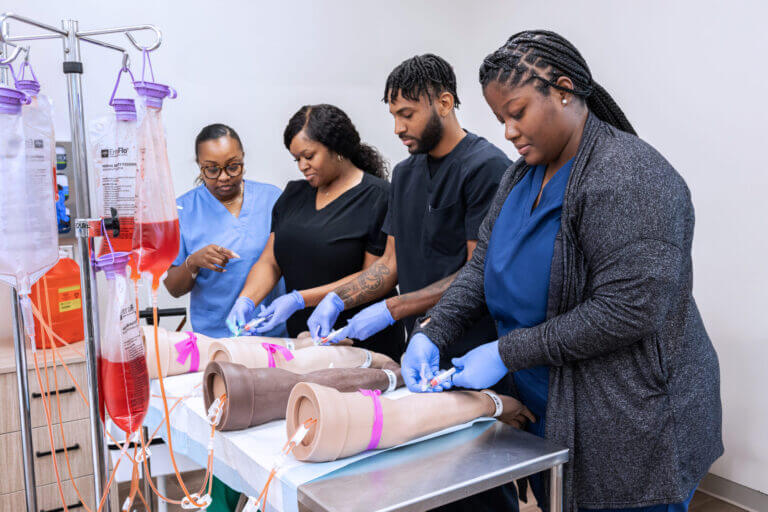
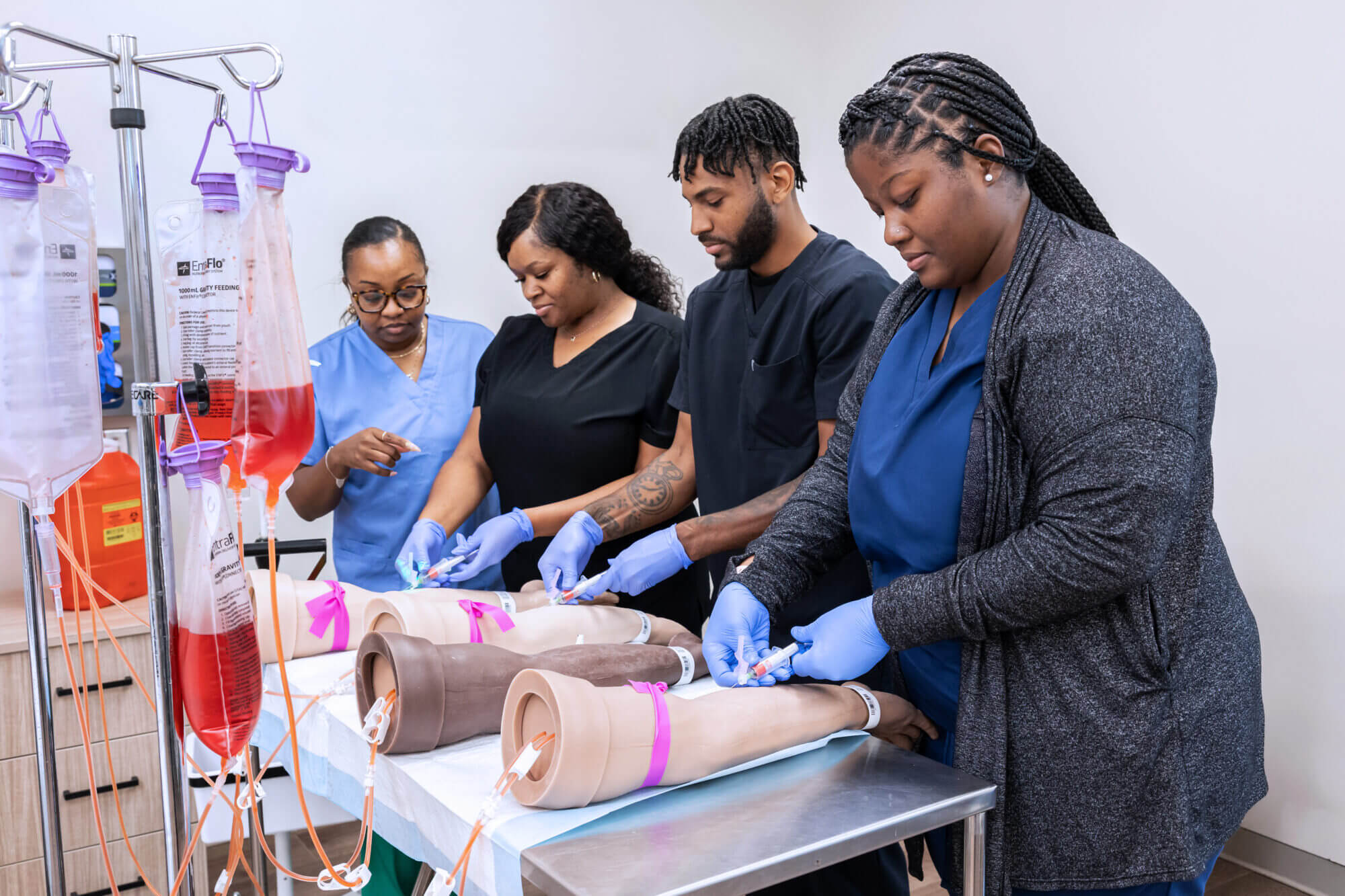
Renee Gentry of Pascagoula will turn 58 next month. A few months after that, she’ll take her board examination to become a licensed practical nurse.

“Everybody’s like, ‘You’re going back to school at your age?’” she said.
Gentry spent 14 years working as a flight attendant, and said she’s also surprised she was able to make the career change. A vocation in medicine became possible when she enrolled in Singing River Health System’s medical apprenticeship program, the first of its kind in Mississippi.
Singing River Healthcare Academy in Ocean Springs allows students to earn as they learn, pursuing certifications in a range of health careers at no cost while receiving a salary and full benefits. It combines classroom instruction with hands-on clinical training in hospitals and clinics, and many students accept jobs at Singing River locations after graduating.
The apprenticeship program celebrated the opening of a dedicated building around the corner from the system’s Ocean Springs hospital this month, which will expand the program’s capacity from about 150 to 1,000 students a year, said Jessica Lewis, chief human resources officer for Singing River Health System.
It was launched in 2021 as Singing River, like other hospitals, was facing critical staffing shortages during the COVID-19 pandemic.
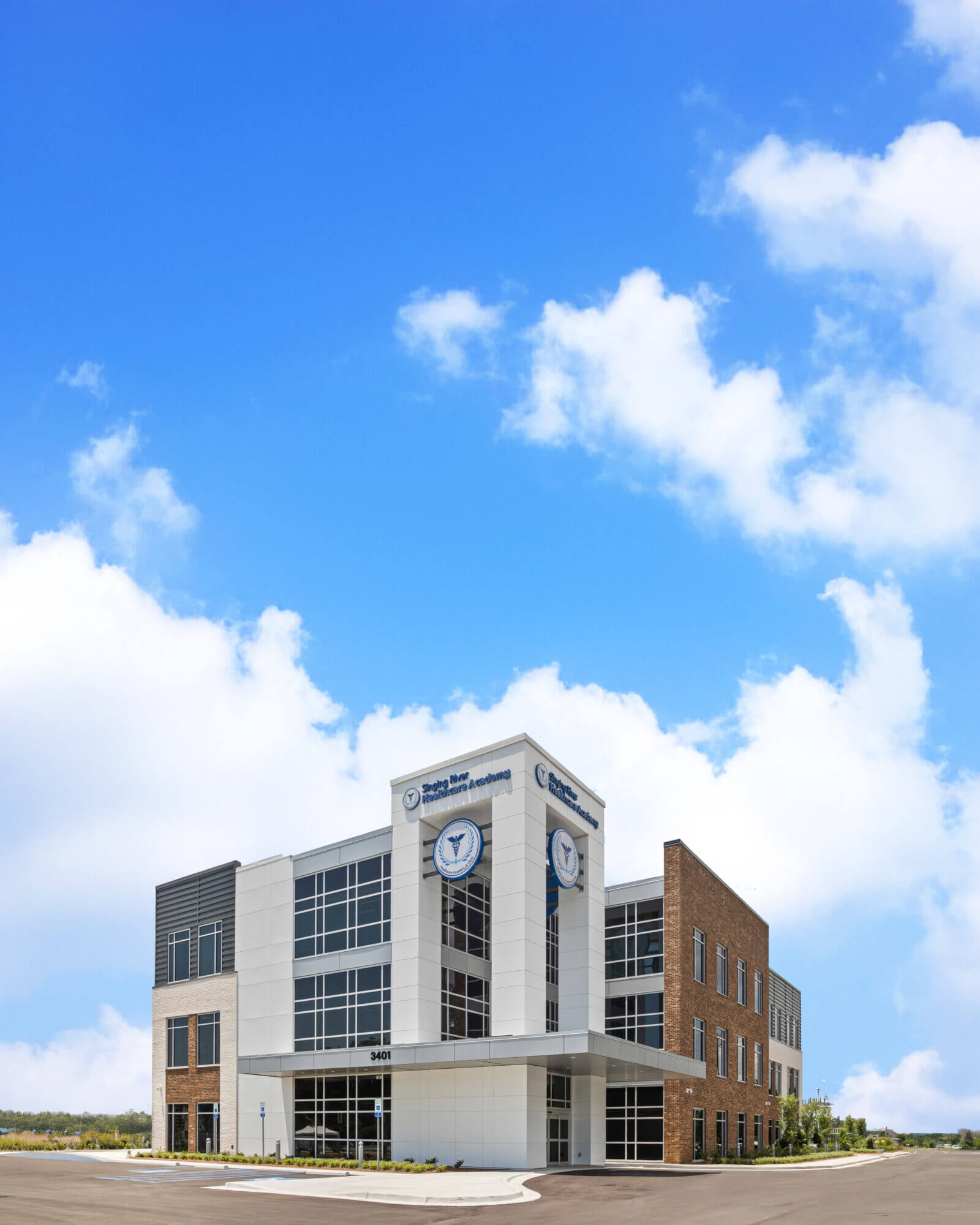
Nurse vacancies skyrocketed across Mississippi in 2021 and 2022 as nurses retired, took jobs outside of hospital settings or accepted more lucrative travel nursing positions.
“We were having to shut down floors and beds,” Lewis said.
But the academy’s effort to train the staff the health system needs has paid off, she said, providing the staff necessary to reopen closed beds and resulting in lower workforce turnover rates.
Gentry saw the effects of the health care worker shortage firsthand while working as a Singing River telephone operator and hospital lobby assistant at the height of the pandemic. Instead of pushing her away from the field, it inspired her to pursue a career in medicine.
She joined the academy’s first class of medical assistant apprentices in 2022. She completed her clinical training at a surgery clinic and was hired on as a full-time employee at the clinic after graduating from the program.
She decided to resume her studies at the academy this year to become a licensed practical nurse and bring a greater wealth of health care knowledge to people in her community.
A new career in medicine was only possible for her because students receive a paycheck while attending school.
“This program has opened up a lot of doors for a lot of people in this community, like me, that probably would have never had a chance to do this,” Gentry said.
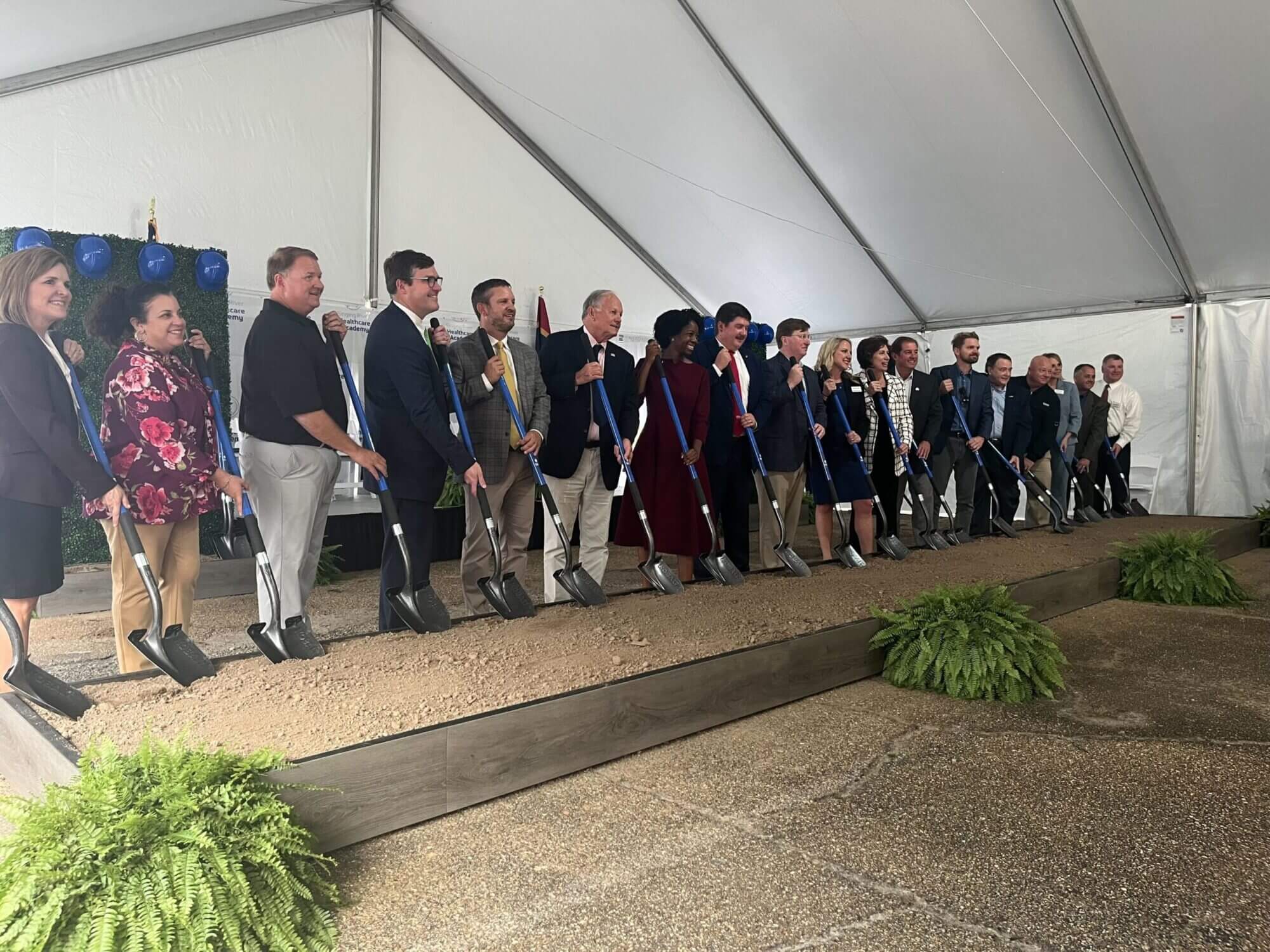
Students at the academy can train to become a certified nursing assistant, medical assistant, phlebotomy tech, pharmacy tech, surgical tech or licensed practical nurse. The licensed practical nurse program operates in partnership with Mississippi Gulf Coast Community College, and the academy also offers classes to high school students.
Because academy students have the opportunity to work in real-world clinical settings, they graduate with four to 10 times the clinical experience they would receive if they went through a traditional program, Lewis said.
Over half of the program’s students are single parents and nearly all are women, said Stephanie Utesch, the human resources operations director for Singing River.
Accessibility is a cornerstone of the academy’s model. Fees for certifications are covered, and students receive supplies like scrubs and backpacks, assistance with child care and transportation, and financial literacy training.
The program is supported by grant funding and requires a large investment from Singing River Health System, Lewis said.
“‘Earn as you learn’ is expensive, but we’re going to be showing the return on investment,” she said, gesturing toward retaining students as full-time employees and being able to offer higher quality patient care.
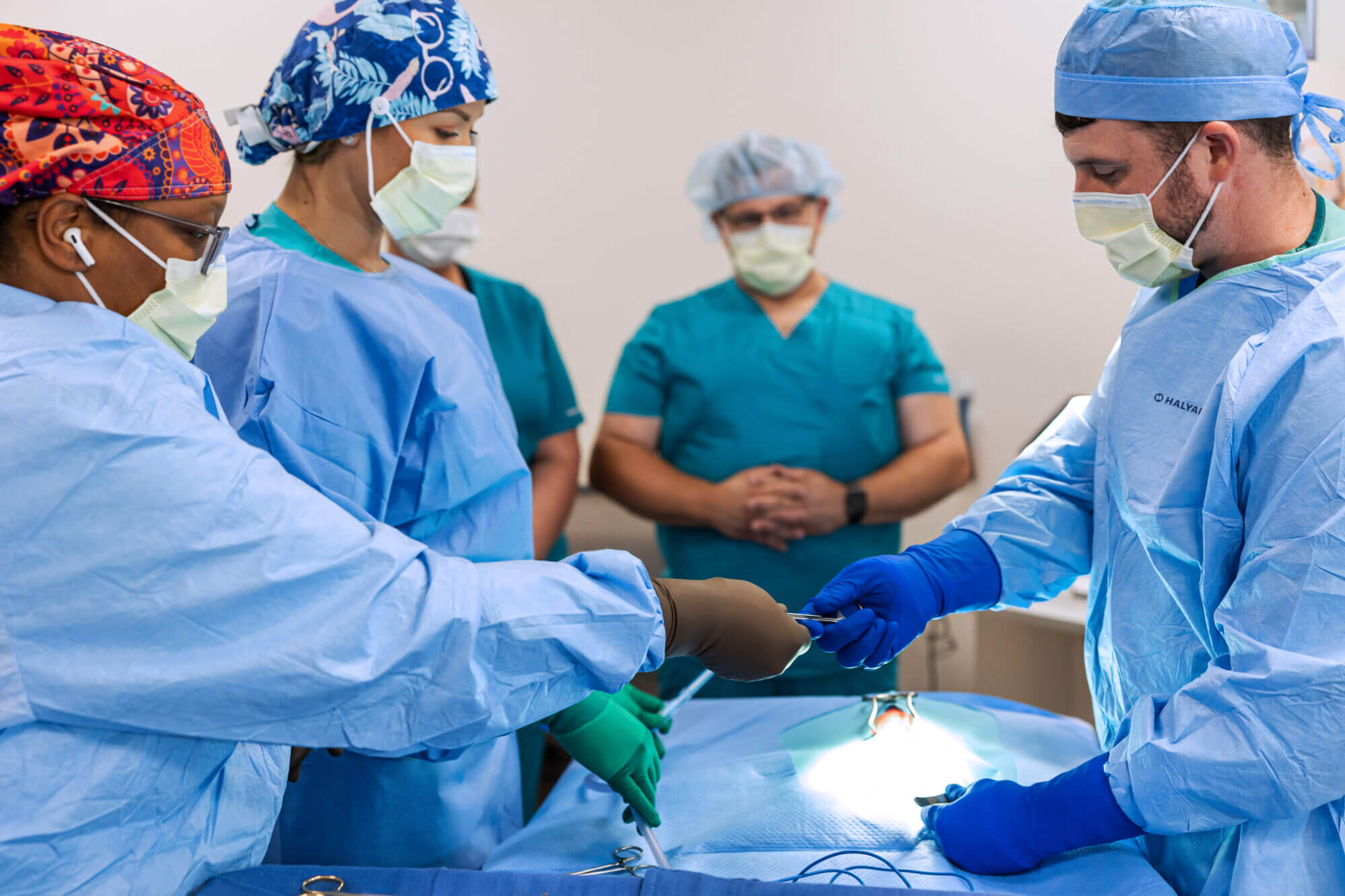
The new facility includes two simulated hospital suites, an eight-bed clinical skills lab, high-fidelity simulation rooms, seven modern classrooms and a computer testing center.
The academy recieved $8.5 million in state funding for construction of the new building, Utesch said.
It also has space for the program to grow. The academy hopes to add a medical billing and coding certification and a program for licensed practical nurses to become certified as registered nurses, or RNs.
Gentry said she hasn’t decided if she will pursue certification as a registered nurse if given the opportunity, though she’s been encouraged to consider it.
“I don’t know,” she said. “I’m going to take it one day at a time.”
- ‘It’s incredibly disappointing.’ Teacher pay raise bills die from politics in Legislature - March 3, 2026
- He was supposed to get married. But in a Mississippi ICE facility, he was told ‘no.’ - March 3, 2026
- Currie revives prison health care bills set to die in Senate, vows to continue fight - March 3, 2026